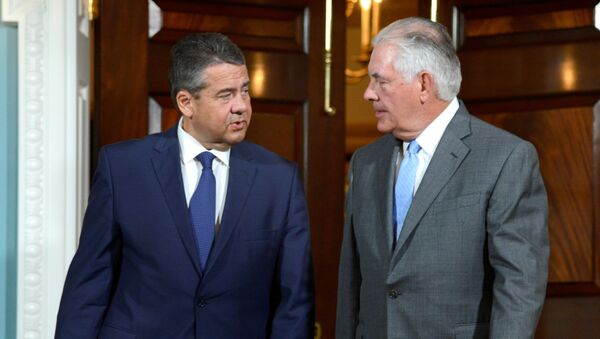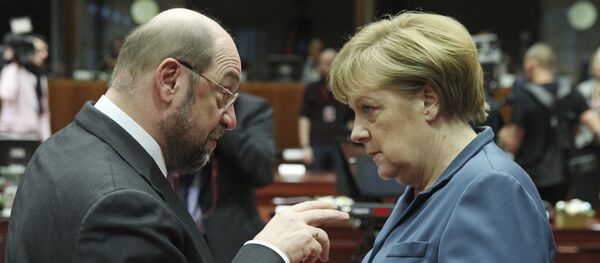Commenting on statements made by the German Foreign Minister and the German Social Democratic Party leader, Alexander Kamkin of the Institute of Europe, a Moscow-based think tank, said that the anti-war sentiments in Germany are intensifying for quite certain reasons.
He said that "Europeans sometimes find it hard to comprehend militant rhetoric by [US President Donald] Trump regarding North Korea, NATO structures and the strengthening of the American presence in Europe."
"The bottom line of the two German politicians' statements can be considered the Social Democrats' consolidated position rather than their pre-election move. This is something that they will obviously put forward and try to implement regardless of who will be the next German Chancellor," Kamkin said.
"Whether Shulz and Gabriel will succeed this time in convincing the Americans to withdraw their nuclear weapons [from Germany] is a big question," he added.
"But this is also a topic for political bargaining and negotiations. And, of course, this may help attract more votes because anti-war sentiment in Germany is a public trend," Kamkin pointed out.
In the Schroeder tradition, SPD using electoral anti-Americanismhttps://t.co/wtjvOa3az3
— Benjamin Haddad (@benjaminhaddad) 29 августа 2017 г.
Early last week, Martin Schulz, leader of the German Social Democratic Party (SPD) and candidate for the post of German chancellor, pledged to ask Washington to withdraw US nuclear weapons from German territory if he defeats Chancellor Angela Merkel in federal elections next month.
Responding to Schulz's comments, German government deputy spokesperson Ulrike Demmer said that the government supports the "global zero" goal, namely, the complete abandonment of nuclear weapons, and that this goal is shared by many of Germany's NATO and EU allies.
"Political, ethical, and practical opposition to US nuclear weapons in Germany goes back decades."https://t.co/jEP9jk5F6V #de
— Dr. Roy Schestowitz (@schestowitz) 20 августа 2017 г.
German Foreign Minister Sigmar Gabriel in turn expressed his support for Schulz's proposal to withdraw US nuclear weapons from German territory.
About 20 US B61 nuclear warheads are presently thought to be stationed at a military base in Buechel, in western Germany.
On August 8, the United States completed the second series of flight tests for an upgraded version of its B-61 nuclear bomb, following the first tests in March.
The tests were conducted as part of a program to extend the life of the B61 gravity bomb, which is one of the main pillars of the US Air Force's nuclear arsenal.




